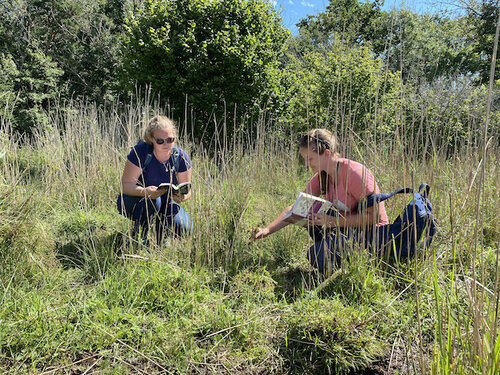Working in an ecological business during a pandemic

As with the majority of industries, the Covid-19 pandemic has impacted the usual function of ecological consultancies just as much as the next business. But the show must go on as we all adjust to ‘the new normal’. For any aspiring ecologists with concerns about joining the industry during current times and climate, I hope this will be insightful and inspiring!
What does an ecologist do?
Ecologists are specialist scientists who study the relationships between living organisms and their physical environment, helping to understand the connection between plants and animals in the world around them.
Ecological consultancy is a social business with the team working and interacting with clients. At Ecology By Design (https://www.ecologybydesign.co.uk) we regularly socialise as a team, undertaking team building activities, as well as summer barbeques and meals out. We are also active participants in networking events, client meetings and CPD training sessions. Our work often involves entering occupied buildings and being in close contact with clients, as well as working away from home, staying in hotels and eating at restaurants, so you can imagine how a contact-heavy job like ours changed during the pandemic!
Working life and adaptations during the pandemic
After a short period of furlough at the beginning of the pandemic, we hit the ground running at the start of the survey season, keen to get back to work. It was great to see the team again (albeit at a distance) as well as all the subcontractors we regularly use during busy periods. We had three new colleagues join the team at the start of lockdown, and with some adjustments, they did a fantastic job of fitting into the company during these difficult times. The pandemic has forced many industries to rethink their protocols, requiring thought into procedures that were perhaps taken for granted before. The priority was to follow government guidelines, whilst providing the best service we could within those restrictions.
Being able to work outside during the pandemic has been a welcome escape from the four walls of working from home. Many people have discovered over lockdown that the great outdoors can have a meaningful impact on our mental health and resilience. As much of our work can be conducted alone, we were still able to keep many of our surveys going during the initial weeks of lockdown.
What has Covid-19 changed for ecologists?
As you can imagine, the way in which the team work has changed with social distancing measures in place. Some of the adjustments we have made throughout the business include:
Working from home where possible.
Strict protocols are adhered to with regards to equipment, and everything is cleaned before and after use to prevent cross-contamination.
Car sharing has had to stop, as well as restrictions on where we can stay overnight.
Face-to-face interaction has had to be restricted at times to ensure we are working within covid guidelines – we aren’t always able to meet clients on-site, attend client meetings, or provide CPD training.
Ecologists usually undertake training courses to progress our skills. The majority of these have been cancelled this year, with some able to proceed online. During the summer we did our own ‘botany training day’ which was a great opportunity to have a socially distanced get together and improve our botany skills.
Due to the nature of the virus, transmission from people to animals is now a possibility therefore new safety measures have been adopted to minimise the risk. This includes keeping handling animals to an absolute minimum, preventing disturbance as much as possible and wearing full PPE if close contact is necessary.
Making the best of the situation
Despite the challenges this year has thrown at businesses, it is inspiring to see everyone pulling together to make the best of a bad situation across a whole spectrum of interrupted industries. I am proud of my colleagues for adapting to ‘the new normal’ and striving to provide the best service possible. It is essential we all keep protecting the NHS and those that are vulnerable so that we can move forward together towards a ‘new normal’.




